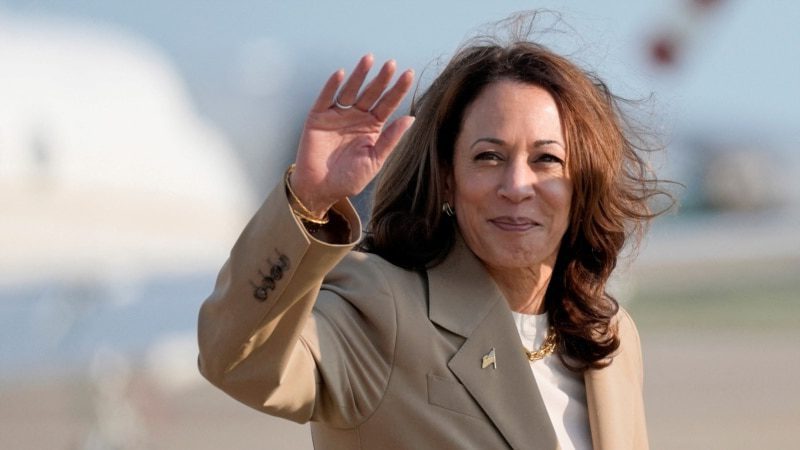BTN News: The political landscape in the United States experienced a significant shift as Vice President Kamala Harris gained a wave of support from Democratic lawmakers, governors, and financial donors. This surge in backing came on the heels of President Joe Biden’s unexpected decision to withdraw from the presidential race. As the nation braced for the upcoming November elections, Harris’s candidacy was rapidly solidifying as the Democratic Party’s best chance against the Republican contender, former President Donald Trump.
Biden’s withdrawal announcement on Sunday was a surprise to many and was quickly followed by his endorsement of Harris. This move seemed to solidify the party’s support behind the former California senator, who promptly declared her intent to seek the nomination. Biden’s endorsement is crucial, as it aims to unite the party and provide a seamless transition to Harris’s campaign.
The fundraising dynamics also saw a notable shift with Harris’s announcement. ActBlue, a major Democratic fundraising platform, reported a remarkable $46.7 million in small donations for Harris’s campaign within hours of Biden’s announcement. This influx of funds underscored the enthusiasm and confidence the Democratic base has in Harris’s leadership. It also highlighted a stark contrast to the declining support Biden had been experiencing, particularly among key donors, following a less-than-stellar debate performance against Trump in late June.
Harris, at 59, brings a wealth of experience and a dynamic presence to the campaign. Her tenure as a senator from California and her role as Vice President have positioned her as a formidable candidate. Her policy positions, advocacy for social justice, and experience in the executive branch provide a strong foundation for her candidacy.
The Democratic Party’s swift consolidation around Harris suggests a strategic effort to maintain momentum and focus on the general election. Biden’s endorsement and the rapid mobilization of financial and political support are indicative of a party ready to rally behind a single candidate to enhance their chances of victory in November.
In the broader context, Harris’s candidacy represents a historic moment for the Democratic Party and the nation. If successful, she would be the first female president and the first president of South Asian and African American descent, marking a significant milestone in American history. Her leadership style and policy priorities are expected to resonate with a diverse electorate, potentially galvanizing a broad coalition of voters.
As the campaign progresses, Harris will need to navigate the complexities of a highly polarized political environment, address the pressing issues facing the nation, and articulate a clear vision for the future. Her ability to effectively counter Trump’s rhetoric and appeal to undecided voters will be crucial in the months leading up to the election.
The unfolding political drama underscores the unpredictable nature of this election cycle and the rapid shifts in support that can occur. For Harris, the road ahead is challenging, but the early signs of robust support from key Democratic figures and the grassroots base are promising indicators of a strong campaign.


